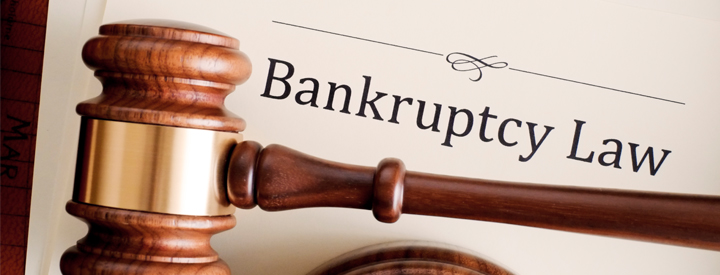October 20, 2016
|Posted by
Christopher Mitchell |- Tax Planning |
- Share This Post
 (508) 792-2800
(508) 792-2800

 Law Blog
Law BlogOctober 20, 2016
|Posted by
Christopher Mitchell |
In 2014 by a unanimous decision, the United States Supreme Court in Clark v. Rameker held that funds in debtors’ inherited individual retirement accounts (IRAs) may be subject to creditors’ claims in federal bankruptcy proceedings.
When an individual files for bankruptcy, he or she may exempt certain assets from the bankruptcy estate, the pool of assets subject to the claims of the debtor’s creditors. The exempt assets usually consist of your primary residence, car, furniture, clothing, etc.
However, a provision in the federal bankruptcy code also provides for a certain “retirement funds” exemption. For the account owner, this exemption protects funds in certain types of retirement accounts such as 401(k) plans, Individual Retirement Accounts (IRA), and Roth IRAs from the reach of creditors.
Typically, an IRA owner names his or her spouse and/or children or other relatives as beneficiaries. Upon the owner’s death, the beneficiary will inherit the IRA and will either take certain required minimum distributions or withdraw all of the funds with varying tax consequences.
However, the question here is whether this protection extends to IRA beneficiaries. The Supreme Court here considered whether an inherited IRA is a “retirement fund” within the meaning of the bankruptcy code.
The facts are as follows. The debtor’s mother passed away and the debtor was named as a beneficiary of her mother’s IRA. The debtor later filed for bankruptcy and sought to exclude the $300,000 of funds in the inherited IRA claiming it is a “retirement fund” and therefore an exempt asset from the bankruptcy estate.
The Bankruptcy Court disagreed and concluded that an inherited IRA is different than a traditional or Roth IRA. The District Court reversed, agreeing with the debtor that the exemption should encompass any account in which the funds were originally accumulated for retirement purposes. The Seventh Circuit Court reversed the District Court. The Supreme Court then affirmed the Seventh Circuit Court, disagreeing with the debtor and upholding the ruling of the Bankruptcy court.
The court here considered the funds in an inherited IRA “a pot of money that can be freely used for current consumption … not funds objectively set aside for one’s retirement.”
This decision has created new challenges in financial and estate planning and has led to difficult and related questions such as:
Potentially, depending on the state of your domicile (primary residence). Several states which have traditionally afforded additional protections to various assets in bankruptcy (i.e. Texas, Florida, North Carolina) have also extended similar protections to the funds held in inherited IRAs. Currently, there is no Massachusetts exemption on the books for such inherited IRAs.
This question has not been answered definitively. Based on the court’s analysis, it is plausible to conclude spouses who have inherited IRAs from their predeceased spouses will also be exposed. One solution to consider is for the debtor/surviving spouse to roll over the inherited IRA funds into his or her own IRA, which would be protected by the “retirement funds” exemption. Non-spousal inherited IRA beneficiaries are not allowed to rollover funds in this manner.
For example, let’s say someone is unmarried and has a child who is a spendthrift and simply irresponsible with managing his or her personal finances. In many cases, people by default still name their children as beneficiaries. Alternatively, the parent may consider contacting a qualified estate planning attorney to draft a trust with certain retirement account provisions. Such provisions could include a see-through trust to utilize the beneficiary’s life expectancy for required minimum distributions. The parent may then name the trust as the IRA beneficiary instead of the child. The trust would include spendthrift provisions to protect the trust property from the beneficiary’s creditors. Here, the funds would then flow from the inherited IRA through the trust to the child in accordance with carefully drafted trust language. However, one must balance these considerations against the cost of drafting and administering a Trust along with the potential tax consequences.
An estate planning attorney who is well-versed in planning for retirement benefits can walk you through the available options along with each option’s pros and cons. Only then can a plan be developed to best suit your and your family’s particular needs.
What Rights Do Donors Have Over Donor-Advised Funds?
01 - 02 - 2020
|Posted by
Christopher Mitchell|Estate Plans Need To Change Over Time
12 - 11 - 2019
|Posted by
Marvin Silver|


45 Lyman Street, Suite 15, Westborough, MA 01581
Phone: (508) 986-9430
Fax: (978) 416-0444
We strive to take a proactive approach in anticipating and preventing legal disputes. When possible, we resolve conflicts through strategic mediation and arbitration. Our attorneys have the experience and knowledge required to devise successful litigation strategies and imaginative, tax-effective estate plans.
© Copyright 2025. Christopher, Hays, Wojcik & Mavricos, LLP